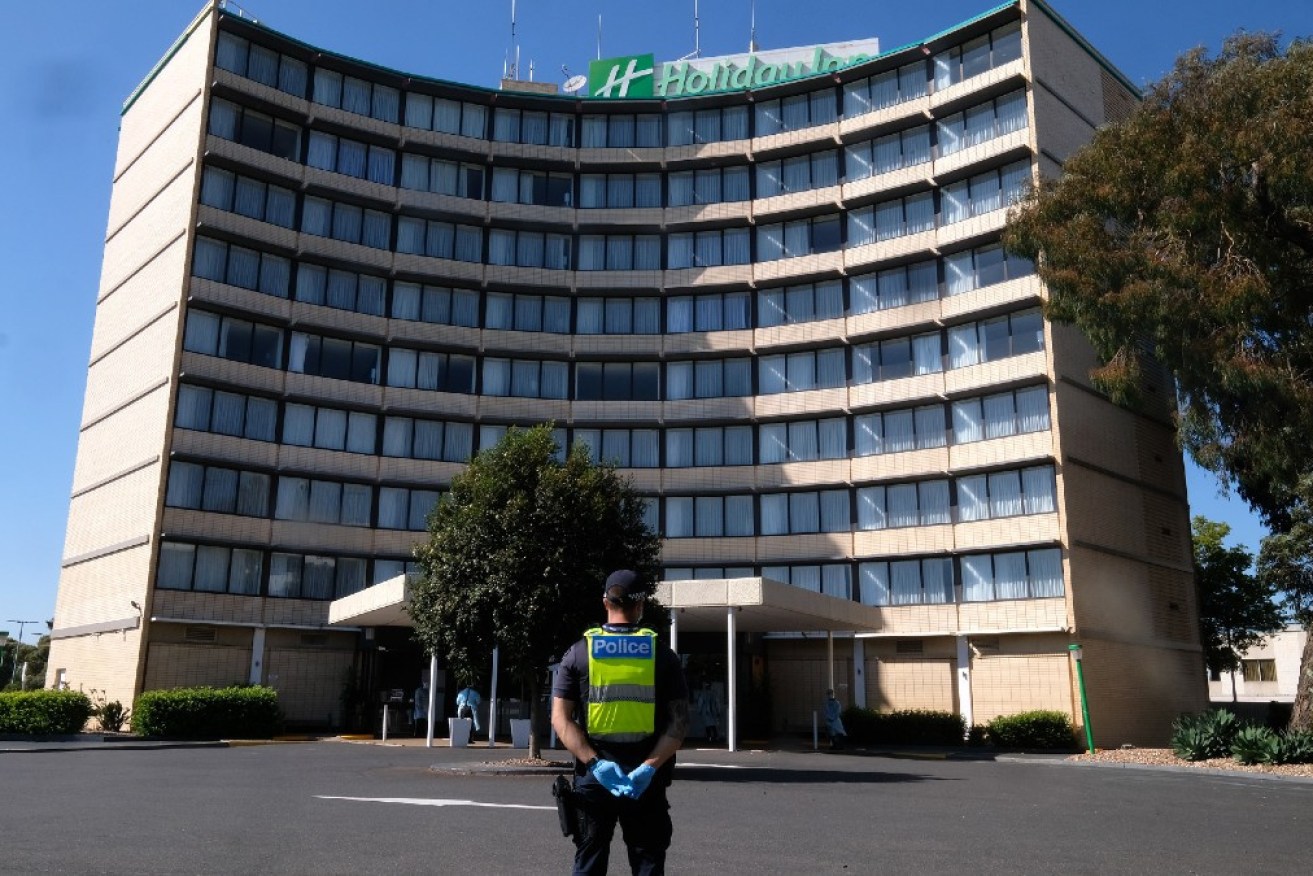Child tests positive to coronavirus ahead of Pfizer vaccine arrival in Australia


The Holiday Inn at Melbourne Airport – ground zero for February's outbreak – will be part of the refreshed program. Photo: AAP
The positive COVID test of a three-year-old child in Victoria has raised questions about the susceptibility of children to the virulent British B117 strain.
The case was confirmed on Sunday, hours before federal Health Minister Greg Hunt announced Australia’s first doses of the world-leading Pfizer COVID vaccine were due to touch down this week.
The long-awaited and delayed vaccination rollout is due to accelerate quickly in coming weeks, with the federal government aiming to inoculate the nation’s highest-risk workers and aged-care residents by the end of April.
It came as three new coronavirus cases were confirmed in Victoria on Sunday: Two locally acquired cases and one in hotel quarantine.
The locally acquired cases were both linked to the Holiday Inn quarantine hotel cluster, bringing the total to 16 on Sunday – the second day of Victoria’s five-day “circuit breaker” lockdown aimed at crushing the outbreak.
The cases include a woman and a child from separate households who attended a function centre in Coburg in Melbourne’s north, and have both been in isolation since February 12.

Infections in Melbourne’s Holiday Inn outbreak have been the catalyst for change and reform. Photo: Getty
Although health authorities expected more cases to emerge, the positive COVID test of a toddler was somewhat unusual.
Children under the age of nine make up just 5 per cent of Australia’s total coronavirus cases, government figures show.
And according to a recent peer-reviewed study, children are about half as likely to contract the virus.
As part of the study, Israeli mathematical scientists analysed computer simulations based on data from 637 households in the Israeli city of Bnei Brak, whose members had all been tested for COVID-19.
The team found that people under the age of 20 were 43 per cent as susceptible to catching the virus as older people, and their infectivity was about 63 per cent of that of adults, meaning children are less likely to spread COVID-19.
Professor Ian Mackay, a virologist at The University of Queensland, said it was unlikely that children were more susceptible to the highly transmissible UK strain of coronavirus than the original strain.
“In terms of infecting a different age group, I don’t see how that could play out unless the biology of the virus itself radically changed and that’s not been evident so far,” Professor Mackay told The New Daily.
“It’s not a magical virus. It doesn’t really leap out and cause a lot more infections in contacts. It’s a fractional thing.”
Professor Mackay said Victorians shouldn’t be more worried about the British strain than the original strain.
“We know that if we do things right, we’ll keep things under control,” he said, pointing to Queensland’s success at stamping out a leak of the B117 strain from hotel quarantine last month.
“It’s business as usual with a slightly different virus.”








